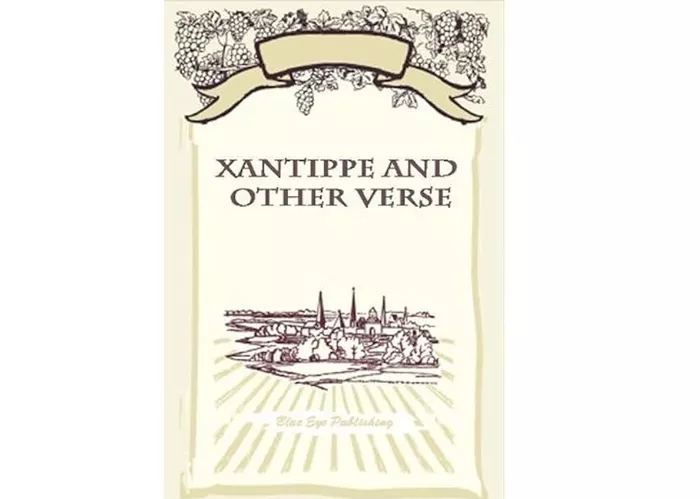Welcome to Poem of the Day – Xantippe by Amy Levy
Amy Levy was a powerful voice in 19th-century poetry. She was one of the first Jewish women to attend Cambridge University and wrote about women’s roles in society. Her poem Xantippe is one of her most important works. It was published in 1881, and it gives a voice to a woman from ancient Greece. In this article, we will explore the poem’s meaning, structure, and message in simple terms.
Xantippe Explanation
Who Was Xantippe?
Xantippe was the wife of the famous Greek philosopher Socrates. In history, she is often seen as a nagging or angry woman. But there is little real evidence to support this image. Amy Levy uses this poem to challenge that view. She imagines what Xantippe might have thought and felt. The poem gives Xantippe a chance to speak for herself.
What Is the Poem About?
The poem Xantippe is written as a dramatic monologue. This means that the speaker (Xantippe) tells her story in her own voice. She talks about her life, her thoughts, and her pain. She explains how she was educated as a child and how much she loved to learn. But once she grew up and got married, her freedom was taken away. She was forced to live quietly, while Socrates talked with students and taught philosophy.
Xantippe feels trapped and forgotten. She is hurt because no one listens to her. The poem shows how women in ancient times, and even in Levy’s time, were often silenced.
Why Did Amy Levy Write This Poem?
Amy Levy was a feminist. She believed that women should have the right to think, speak, and live freely. In Xantippe, she uses a historical figure to show the pain caused by a male-dominated world. Levy wants the reader to see that Xantippe was not just a background figure. She had a mind and feelings, just like any man.
Levy also wanted to speak out against the unfairness women faced in her own time. In 19th-century Britain, women still had few rights. Education and careers were often closed to them. By writing this poem, Levy was standing up for women’s voices.
What Is the Tone of the Poem?
The tone of Xantippe is sorrowful, strong, and thoughtful. Xantippe speaks with deep emotion. She is not angry without cause. She is frustrated and full of sadness. But she is also proud of who she is. She remembers her love for learning and how much she wanted to know about the world.
This tone helps the reader feel close to Xantippe. We begin to understand her pain and respect her strength.
How Is the Poem Structured?
The poem is long and written in blank verse. This means it does not rhyme, but it has a regular rhythm. The lines are written in iambic pentameter, which is a common form in English poetry. This style gives the poem a serious and classical feel. It suits the voice of a woman from ancient Greece.
Levy carefully builds the story. The poem starts with Xantippe’s memories of childhood. Then it moves to her marriage and the loss of her freedom. At the end, she reflects on her suffering and speaks out against the silence forced on women.
What Are the Main Themes?
Several important themes appear in Xantippe:
Women’s Silence: Xantippe speaks about being ignored and pushed aside. She was not allowed to share her thoughts or ideas. This shows the way women were often treated in history.
Lost Dreams: As a child, Xantippe dreamed of learning and growing. But those dreams were taken from her after marriage. This is a sad reminder of how many women were stopped from reaching their full potential.
Strength and Resistance: Even though she suffers, Xantippe does not give up. She remembers who she is. She speaks with pride and strength. Her voice becomes a form of protest.
Critique of Great Men: Socrates is often seen as a great thinker. But in this poem, we see a different side. He is shown as someone who ignored his wife and her needs. Levy wants us to question the stories we are told about famous men.
Why Is the Poem Still Important Today?
Xantippe remains a powerful poem because it speaks to issues we still face. Women around the world continue to fight for equal rights. The poem reminds us that women’s voices have often been erased from history. Amy Levy gives one of those voices a chance to speak.
It also shows us that every person has a story. Even those who are forgotten or misunderstood have thoughts, dreams, and pain. Xantippe teaches us to listen more carefully and think more deeply about the past.
Conclusion
Amy Levy’s Xantippe is more than just a poem about a woman from ancient Greece. It is a strong and emotional work of art that challenges the way we view women’s roles in history. Through simple but powerful language, Levy gives life to a silent figure and asks us to hear her story. The poem encourages us to question tradition, value women’s voices, and remember that every person has the right to be heard.

